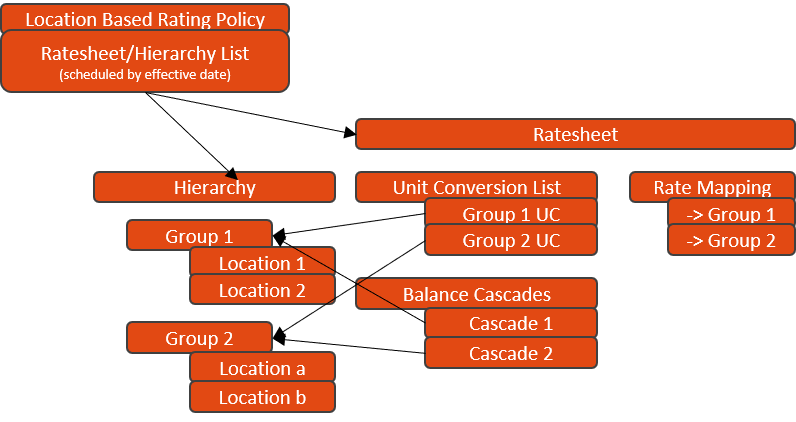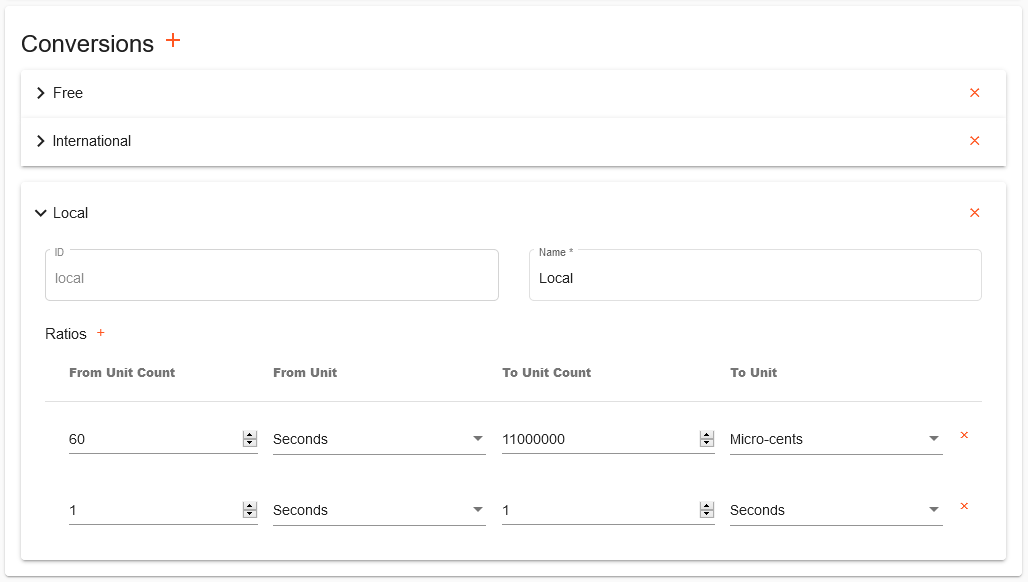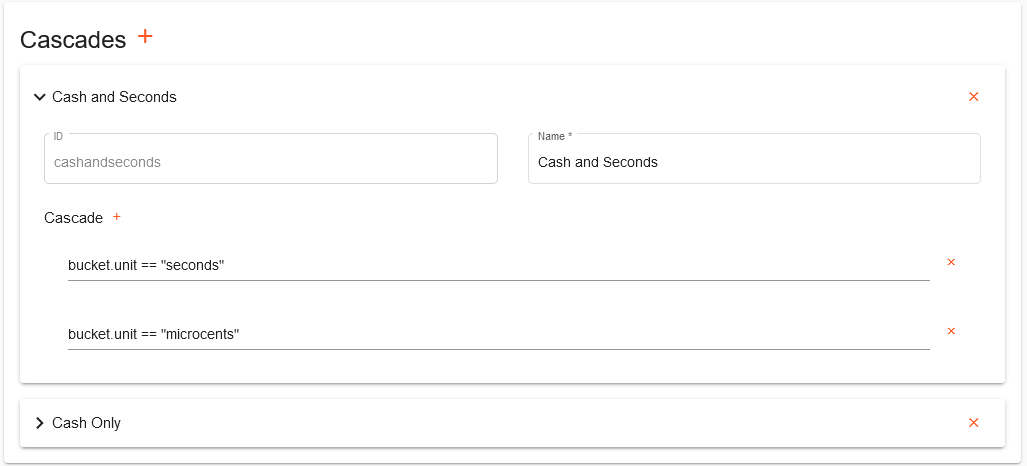Ratesheets
OCS ratesheets define the rating to apply to a session or event. Unlike the default OCS rating, ratesheets provide granulated rating based on source and destination locations of the session.

As discussed in locations, location based rating is not limited to physical locations, and the OCS' ratesheet based rating is closely coupled with the location rating policy.

Each Location Based Rating Policy configured in the OCS is defined by a scheduled list of ratesheet/hierarchy pairs. If a policy is applied to a rating request (due to the policy selector choosing it), the policy will determine the actual hierarchy/ratesheet based on the effective date/time of the rating request.
If an active ratesheet exist, the location rating policy then uses the location hierarchy for the scheduled time to determine the source and destination of the rating request. This source and destination of the rating request is the used to determine the best match rate from the location hierarchy itself.
Based on this best match, the policy can then apply the balance cascade and unit conversion rules to the rating engine.
Unit Conversions

Unit conversion rules are defined as a list of conversion ratios between a source (the unit being charged by the client) and a destination (the unit being charged by the OCS). For example, a unit conversion may apply a conversion between MB and cents of 1MB for 1cent.
Multiple conversions may exist to apply conversions for different rating scenarios - crucially unit conversions will differ for different pricing regions for voice calling.
Balance Cascade Rules

Balance cascade rules are governed by the same expression engine as policy selectors. Balance cascade rules define which buckets of a wallet may be included in the list of balances for a rating request.
Further, balance cascade rules are defined as a list, and hence provide a hierarchy of buckets to use. Those buckets that are selected earlier due to the cascade are used in preference to those that are selected later.
For example, this allows the OCS to select promotional or “free” cash balances first, prior to a subscriber’s “general cash” balance.
Usually this selection is done based on the group annotation, however unit type and other annotations (e.g. the @Name annotation) may also be used.